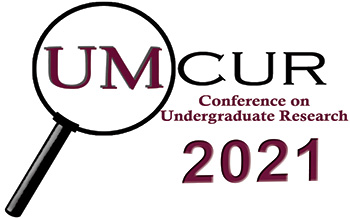Project Type
Presentation
Faculty Mentor’s Full Name
Ardi Kia
Faculty Mentor’s Department
Central and Southwest Asian Studies Center
Abstract / Artist's Statement
This paper, in three parts, compares the core metaphysical positions of the preeminent 11th century Islamic philosopher Avicenna with the theological teachings of the prophet-founder of the Bahá’í Faith, Bahá’u’lláh, born in 19th century Iran. Part one presents Avicenna’s cosmological argument for God’s existence and analyzes his conception of God’s nature, and shows that Bahá’u’lláh broadly affirms Avicenna’s argument for God’s existence and his basic account of the divine nature. Part two subsequently discusses how Avicenna deduces further attributes of God from the notion of his necessary or unconditioned existence, and likewise attempts to demonstrate that Bahá’u’lláh affirms Avicenna’s account of God’s essential properties, such as unity, oneness, immateriality, eternity, intellect, and will. The third and last part compares the respective cosmologies of Avicenna and Bahá’u’lláh and their ideas regarding God’s creative act and relation to the world.
This study consists of original research on and translation and comparative analysis of Avicenna’s and Bahá’u’lláh’s Arabic and Persian works; it deals specifically with Avicenna’s ash-Shifá and Dánishnámih, as well as Bahá’u’lláh’s important epistolary works, such as the Tablet of Wisdom and the Tablet of the Simple Reality. The paper demonstrates the continuing influence of one of Islam’s most prominent philosophers, Avicenna, while it also contributes to the small but robust body of academic literature on the theology of the Bahá’í Faith, the youngest of the world’s religions. As such, this paper is relevant to the fields of comparative religion, philosophy of religion, metaphysics and theology, as well as Middle Eastern studies and history more broadly. The presentation will likewise familiarize a general audience with an essential figure of the history of Islamic thought, Avicenna, and likewise with the significance and intellectual richness of a contemporary faith that originated in the modern Middle East, with five million adherents worldwide.
Category
Humanities
Bahá'u'lláh and the God of Avicenna
This paper, in three parts, compares the core metaphysical positions of the preeminent 11th century Islamic philosopher Avicenna with the theological teachings of the prophet-founder of the Bahá’í Faith, Bahá’u’lláh, born in 19th century Iran. Part one presents Avicenna’s cosmological argument for God’s existence and analyzes his conception of God’s nature, and shows that Bahá’u’lláh broadly affirms Avicenna’s argument for God’s existence and his basic account of the divine nature. Part two subsequently discusses how Avicenna deduces further attributes of God from the notion of his necessary or unconditioned existence, and likewise attempts to demonstrate that Bahá’u’lláh affirms Avicenna’s account of God’s essential properties, such as unity, oneness, immateriality, eternity, intellect, and will. The third and last part compares the respective cosmologies of Avicenna and Bahá’u’lláh and their ideas regarding God’s creative act and relation to the world.
This study consists of original research on and translation and comparative analysis of Avicenna’s and Bahá’u’lláh’s Arabic and Persian works; it deals specifically with Avicenna’s ash-Shifá and Dánishnámih, as well as Bahá’u’lláh’s important epistolary works, such as the Tablet of Wisdom and the Tablet of the Simple Reality. The paper demonstrates the continuing influence of one of Islam’s most prominent philosophers, Avicenna, while it also contributes to the small but robust body of academic literature on the theology of the Bahá’í Faith, the youngest of the world’s religions. As such, this paper is relevant to the fields of comparative religion, philosophy of religion, metaphysics and theology, as well as Middle Eastern studies and history more broadly. The presentation will likewise familiarize a general audience with an essential figure of the history of Islamic thought, Avicenna, and likewise with the significance and intellectual richness of a contemporary faith that originated in the modern Middle East, with five million adherents worldwide.
